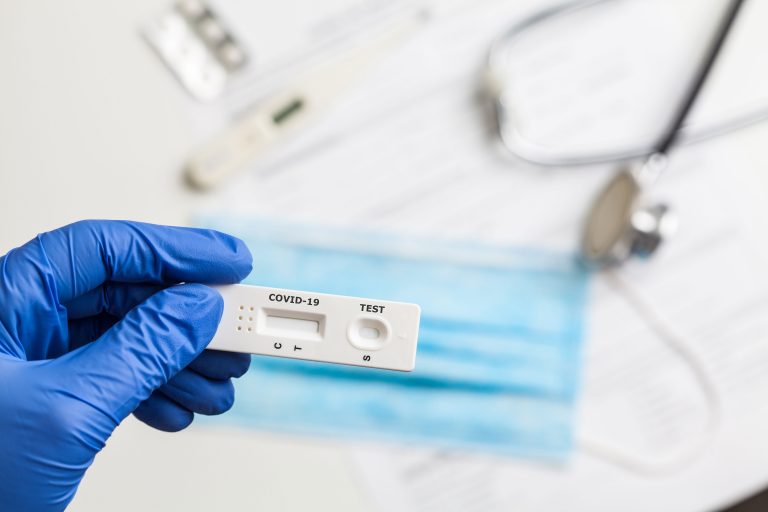
Diagnostics giant Quidel has achieved a second FDA approval for a COVID-19 antigen test, this time one that can be carried out at home within 10 minutes.
The first approval the San Diego-based firm achieved was in December 2020 for its QuickVue SARS Antigen Test, that was only certified for use by Clinical Laboratory Improvement Amendments (CLIA) approved laboratories.
The new at-home test uses similar technology to the earlier antigen test, but can be carried out entirely at home with a prescription. The test requires a nasal swab, which the consumer then places in a test tube with a test strip. The test strip acts like a pregnancy detector and will show different colored lines if the result is positive or negative.
Like most antigen tests, the Quidel test is quicker and cheaper, but not as accurate as RT-PCR testing. In this case, the QuickVue At-Home COVID-19 Test is better at picking up people who do not have the virus — agreeing with PCR results 99.1% of the time. But less good at picking up positive results, agreeing with PCR 84.8% of the time.
The test is designed for self-testing for someone aged 14 years or older, or for an adult to test another person aged 8 years or older. It has to be prescribed by a healthcare professional and should be authorized for use by patients suspected of SARS-CoV-2 infection within the first 6 days of symptoms starting.
“Our mission is to provide greater access to frequent, affordable and highly accurate diagnostic testing, and ultimately to enable individuals to take charge of their own health and help them make prudent decisions to protect themselves and their loved ones,” said Douglas Bryant, president and CEO of Quidel Corporation. “This is an important first step in a two-step process that, once additional ongoing studies are completed, will further expand access to frequent testing at home.”
The QuickVue test is the fourth at-home COVID-19 test to be approved by the FDA. The first on prescription home test was approved in November 2020 – Lucira’s all-in-one test that uses LAMP technology.
In December 2020, Abbott’s BinaxNOW prescription home antigen test was approved, as was Australian biotech Ellume’s quantum-dot boosted antigen test. The latter does not require prescription and has a high degree of accuracy for an antigen test, with a sensitivity (ability to pick up positive results) of 96% and a specificity (ability to pick up negative results) of 100% in those with symptoms.
The NIH has just launched a study to test a smartphone app that pairs with the newly approved QuickVue test. The app, MyDataHelps, will give those in the study step by step instructions for how to use the at-home test as well as the chance to use built in timers to make sure the test timing is correct. The app user can then photograph the test strip to get a confirmation of their result through the app if they are unsure.
The purpose of the study is to assess if using the app and the QuickVue test together will improve the accuracy of the results and reduce user error.













